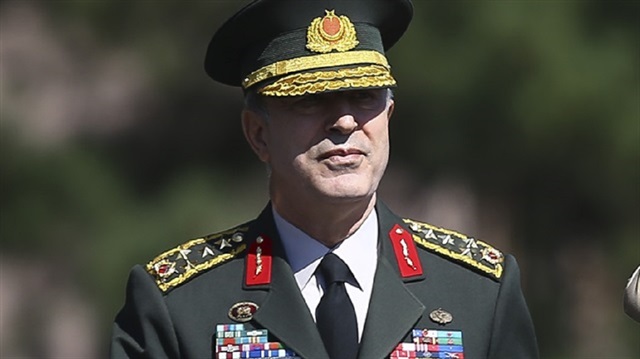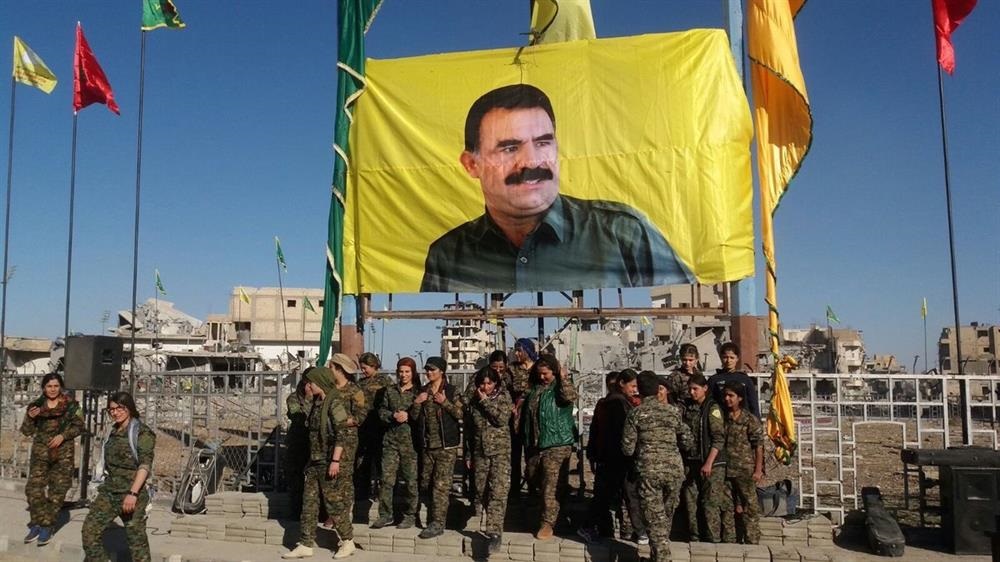
Chief of General Staff Gen. Akar warns against threats of terrorist organizations Daesh, PKK, PYD and YPG
Chief of General Staff Gen. Hulusi Akar said that the People’s Protection Units (YPG), which is the armed wing of the Democratic Union Party (PYD), the Syrian offshoot of the Kurdistan Worker’s Party (PKK), were all terrorist organizations part of the same structure at the International Chiefs of Defense for Counter-Violent Extremist Organizations Conference held in the U.S. capital Washington.
Gen. Akar said that the images emerging from Syria’s Raqqa were proof of this. The U.S. delivered Raqqa from Daesh to the PKK/PYD. He also discussed the security threat posed by these terrorist organizations as well as Daesh on Turkey’s southern border.
Military leaders from 73 countries as well as top NATO and EU officials attended the conference, which was held for the second time this year. Gen. Akar discussed Turkey’s contributions to the security of the region at the event, which was held at Fort Belvoir.
“The PKK wants to establish a terror corridor in Turkey’s south using different names, but Turkey will not allow this,” said Gen. Akar.

He also called to halt the military aid sent to the Syrian Democratic Forces (SDF) which is dominated by the YPG and reiterated that despite the agreement that the terrorist organization retreat to Manbij, it failed to do so.
Gen. Akar stated that terrorist organizations such as Daesh and the PKK/PYD adversely affected the security of the region, and shared Turkey’s suggestions for combatting these threats. He discussed the success of Operation Euphrates Shield and shared information regarding the military operation in Idlib to monitor the ceasefire and establish a series of observation posts between Idlib and Afrin.
The conference, which was hosted in October last year, hosted over 40 chiefs of staff and was held at Joint Base Andrews.
The PKK is listed as a terrorist organization by Turkey, the European Union and the United States. The PKK has been conducting armed violence in the southeastern part of Turkey since 1984. More than 40,000 people, mostly civilians, have been killed in the three-decade long conflict.
Hello, the comments you share on our site are a valuable resource for other users. Please respect other users and different opinions. Do not use rude, offensive, derogatory, or discriminatory language.
The floor is all yours.









